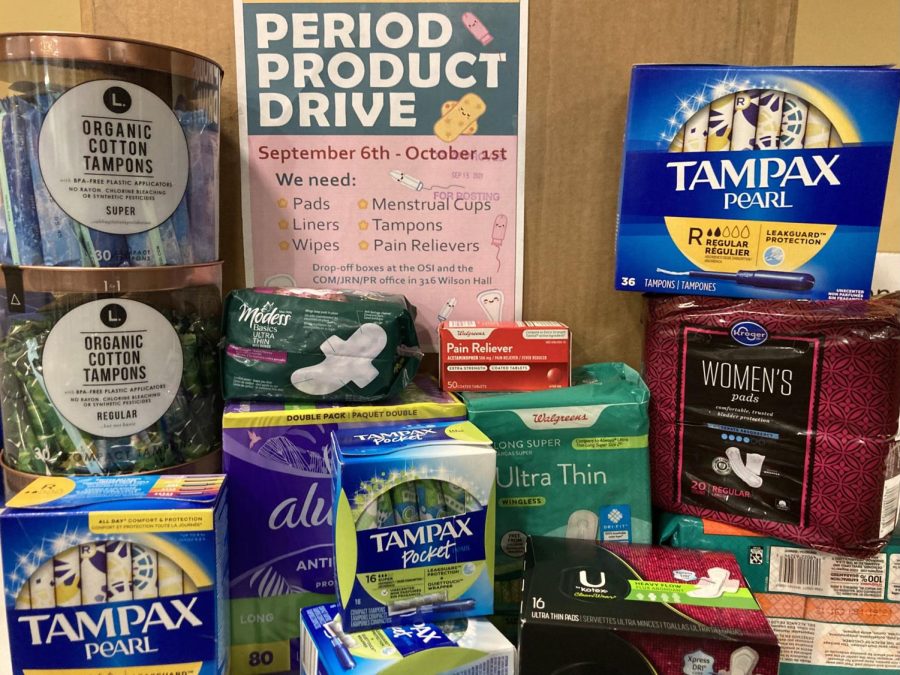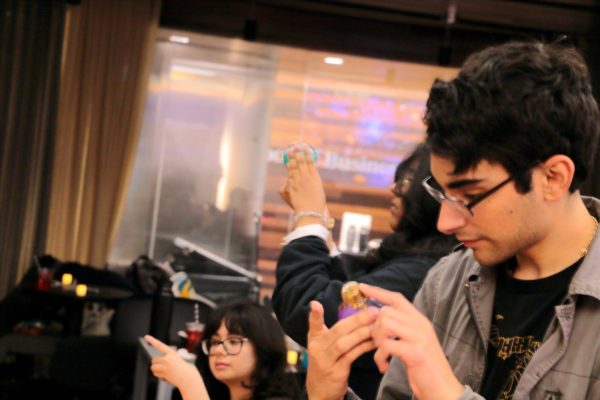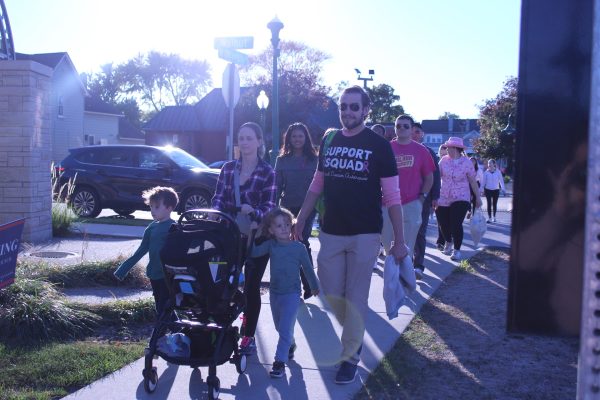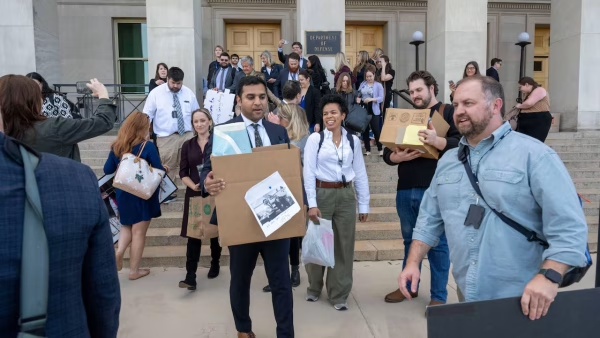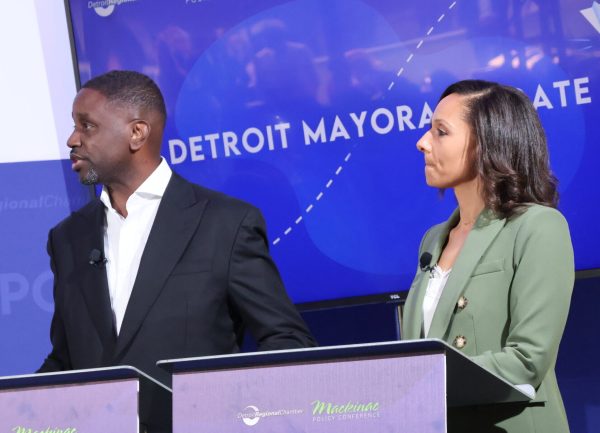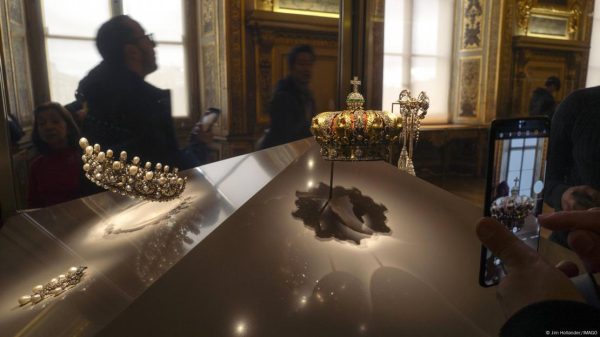AAUW hosted menstrual product drive in hopes to help end “period poverty”
The AAUW at OU is hosting a menstrual product drive through Oct. 31. The drive is an effort to promote menstrual equality.
More than 800 million people menstruate daily. Nearly a quarter of college students, however, experience what we now call “period poverty,” according to a 2021 survey.
To promote menstrual equity for women, the American Association of University Women (AAUW) at Oakland University hosted a period product drive, collecting pads, tampons, pain relievers, etc. from Sept. 6 through Oct. 31.
“For most college students, money is tight,” Olivia Rademacher, vice president of the AAUW said. “Although the university offers resources for students like free printing, free toilet paper for students in the residence halls, and the OU food pantry, we recognize that feminine products are hardly ever something people think about as a necessity for students with female anatomy. Periods are a normal bodily function and students who have them deserve quality products that they shouldn’t have to worry about paying for. We hope this drive helps students receive a necessary resource which is overlooked most of the time.”
While this fundraising event raises awareness about the seriousness of “period poverty,” the COVID-19 pandemic has prevented initiation of such events. AAUW’s period product drive wasn’t an exception. Due to COVID-19, the period product drive couldn’t make its way out as not many students were on campus.
“During the pandemic I had some friends who were struggling to attain period products,” Amanda Pordon, secretary of the AAUW, said. “Whether this was due to money or the fact that they were low in supply at the time, I do not know. Because of this, I suggested to the AAUW E-Board that we hold a drive for feminine supplies. Unfortunately, people who experience periods need these products so they can continue to go about their daily lives like society demands. Without them, we struggle through this natural process.”
Despite the difficulties, the drive was a successful event as they have collected many products from the students.
Gender gaps are constantly narrowing, and the number of females in male-dominated fields have always been increasing. However, unconscious gender disparities in healthcare still remain as an urgent matter that needs to be solved.
“I think women’s health will always be taken less seriously,” Rademacher said. “Especially African American women, who are far more likely to die in childbirth. Look at Serena Williams: her doctors didn’t believe that this woman – whose entire career is based on her understanding of her body – could tell something was wrong, and she almost lost her life over it. Women in healthcare – and society in general – are separated from their bodies and discouraged from asserting any control over them. I hope our period product drive helps OU women feel like they’re getting even a small amount of power back.”
According to Rademacher, through a variety of fundraising events, AAUW strives to connect OU women with leadership opportunities and educate OU students about the gender issues facing women in hopes that it will inspire a change.
The club’s meetings are held virtually on a Wednesday each month from 5-6 p.m. Each month has a theme, typically surrounding a specific issue relating to women, and is dedicated to education and conversation about the issues.
Throughout the month of October, AAUW is hosting a fundraiser in support of breast cancer research, and at the end of the month, they are planning on having their second annual Breast Cancer Walk on OU campus as well as participating in Make A Difference Day on Oct. 16.
For more information regarding AAUW or events hosted by the club, visit their GrizzOrgs page.



